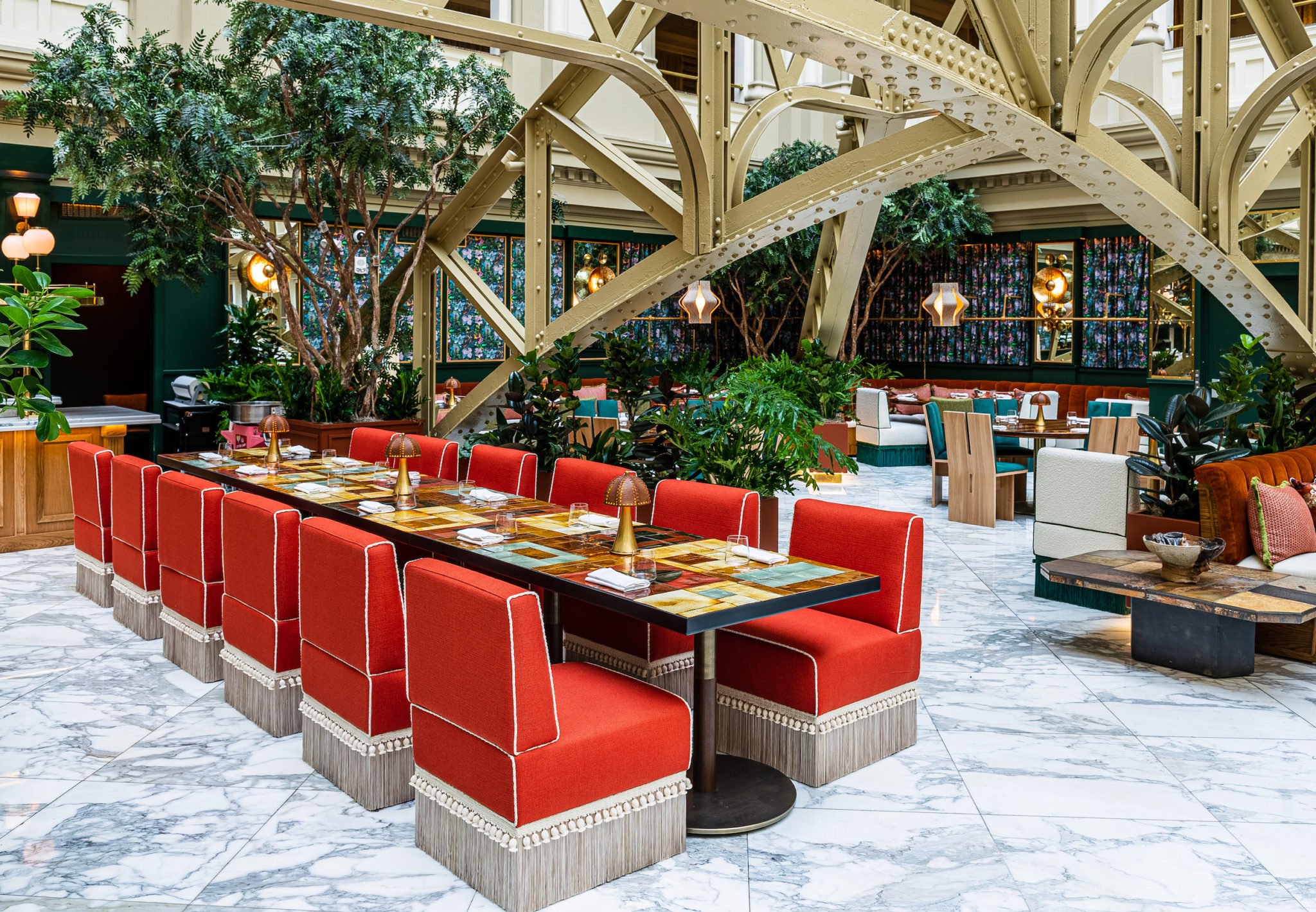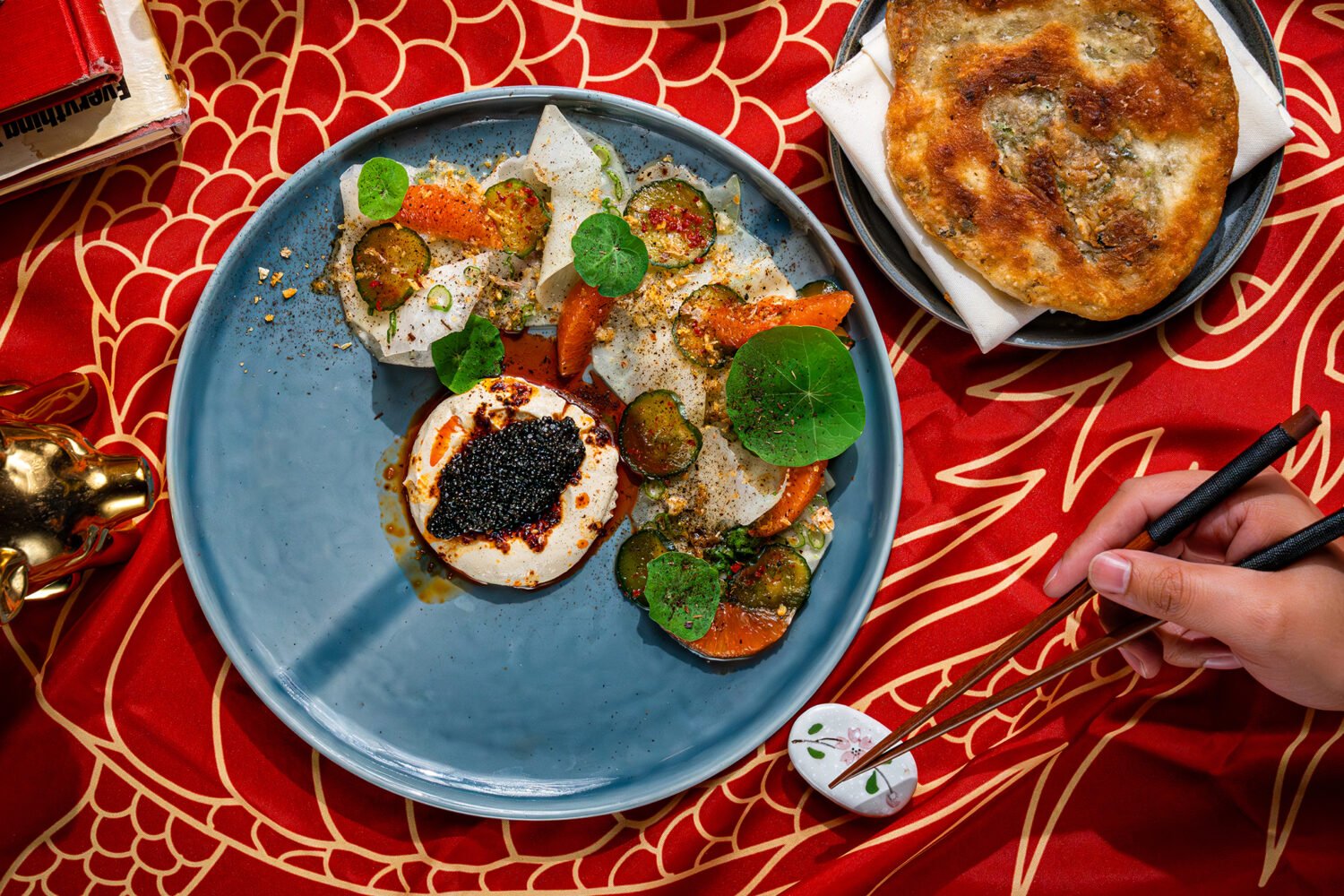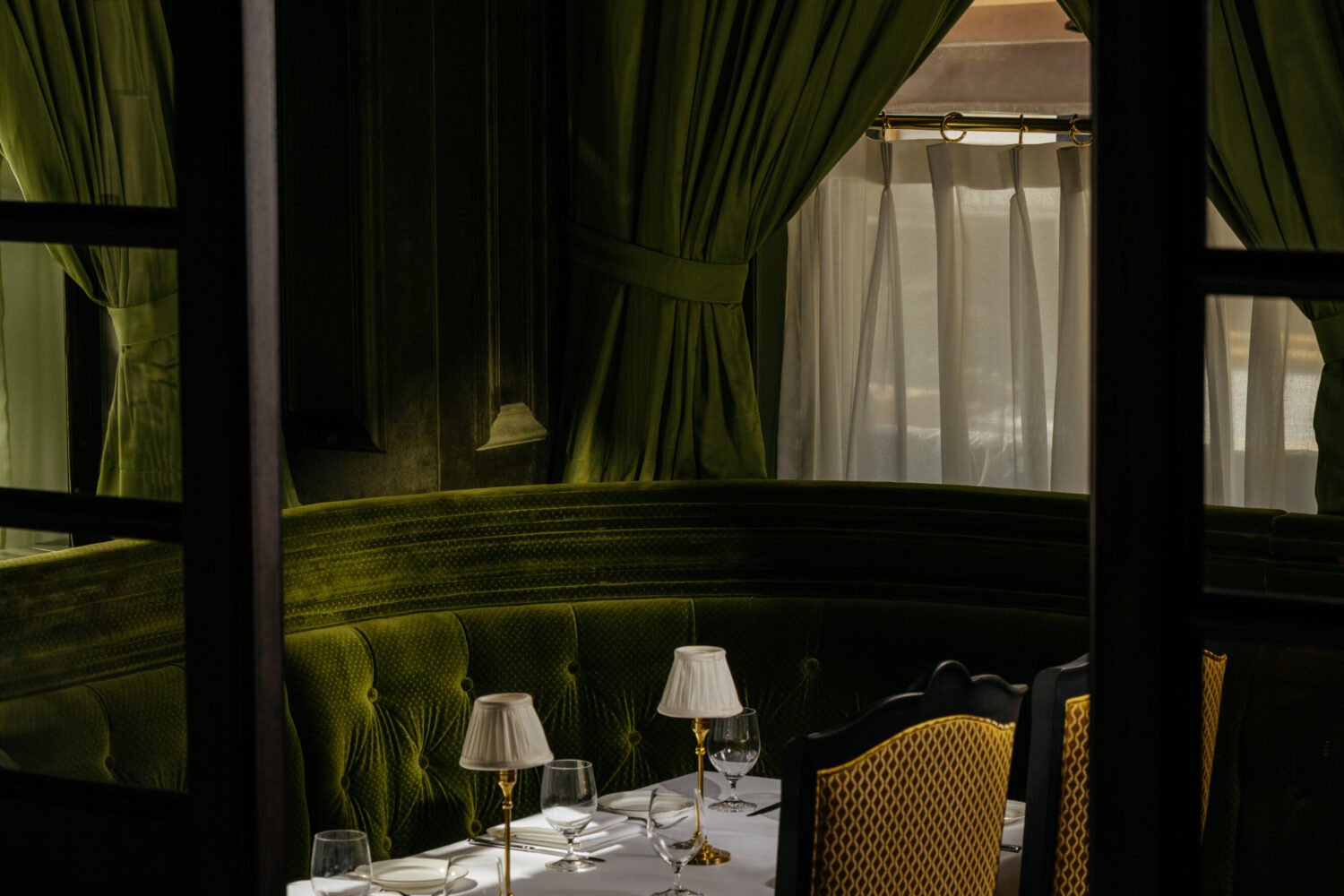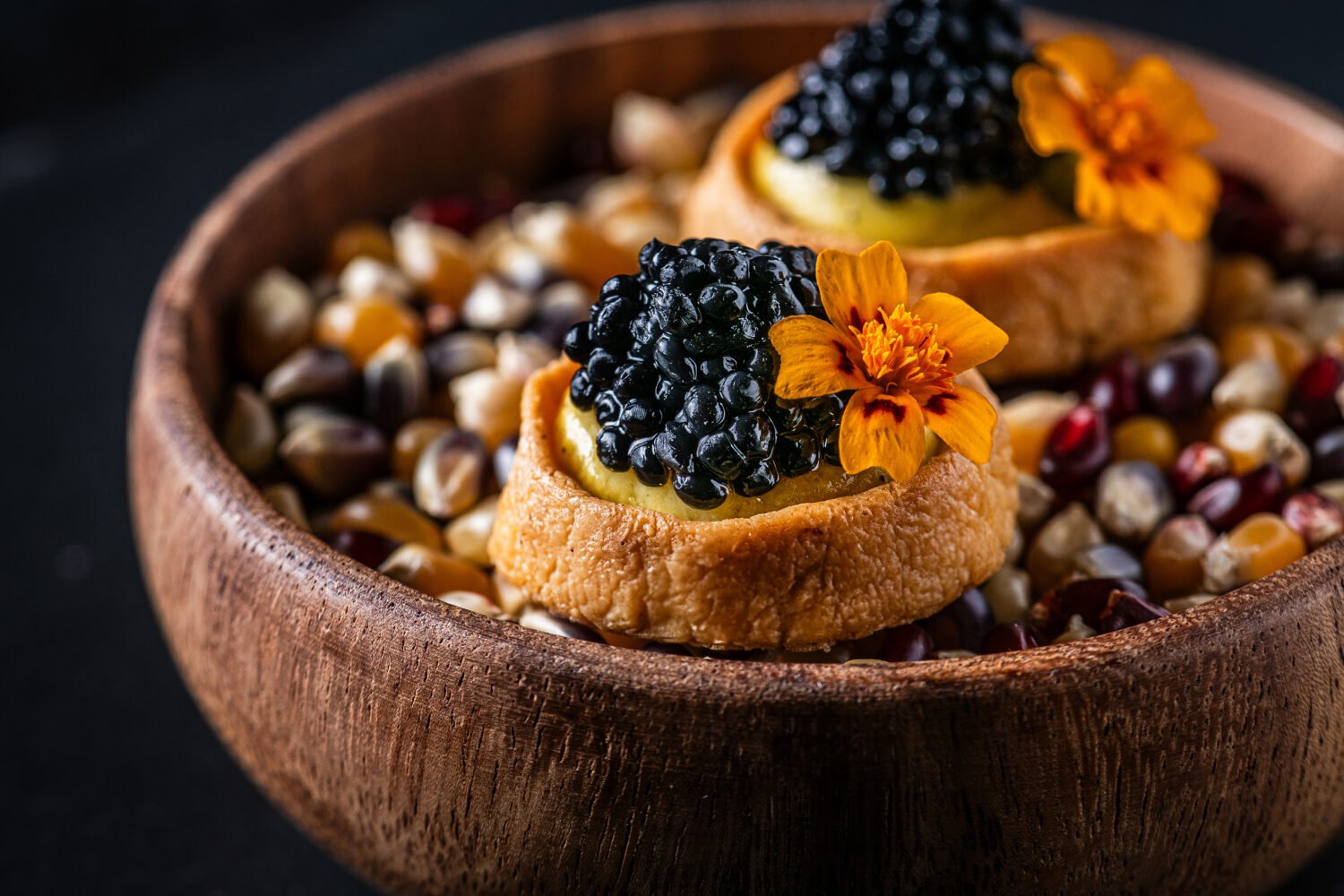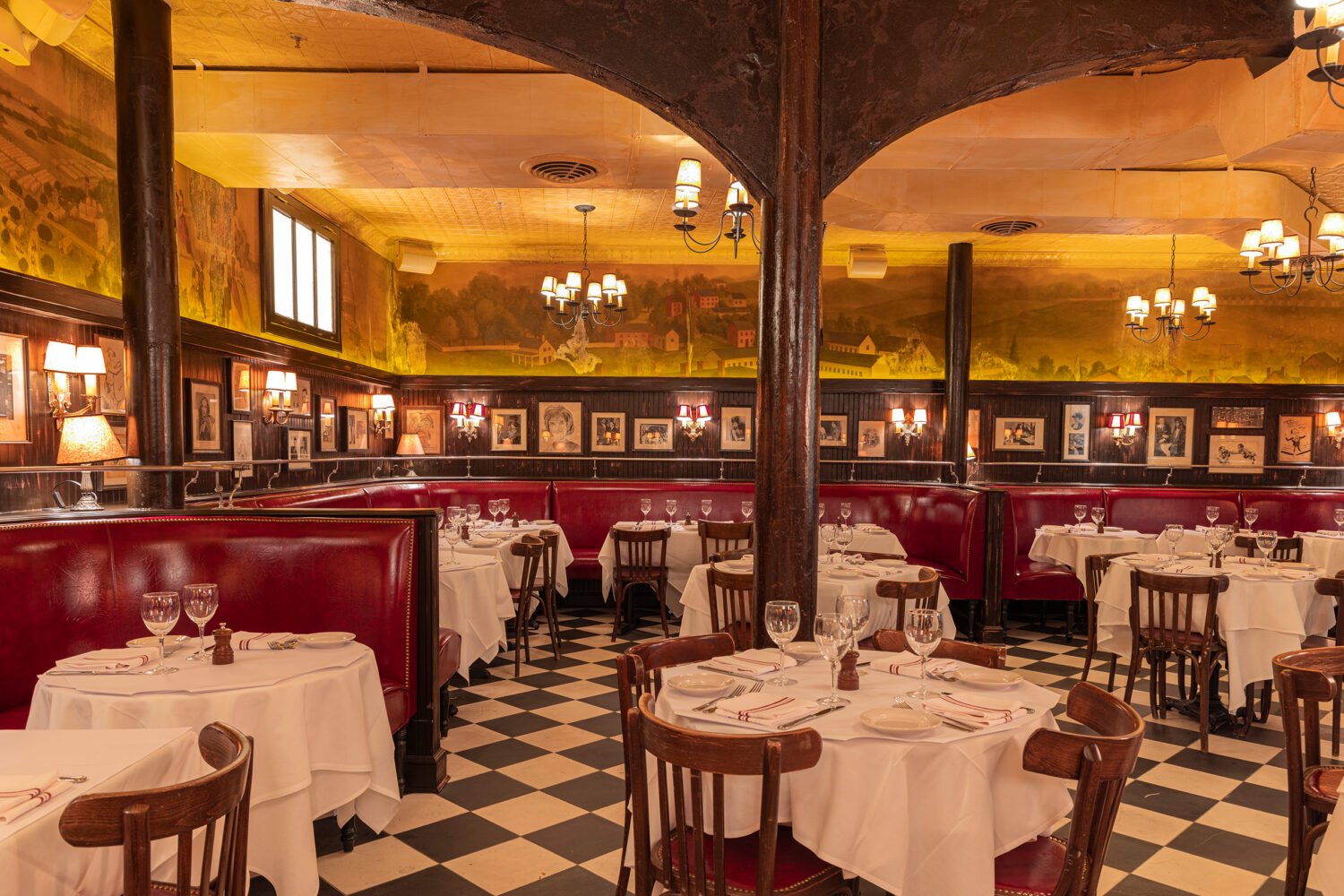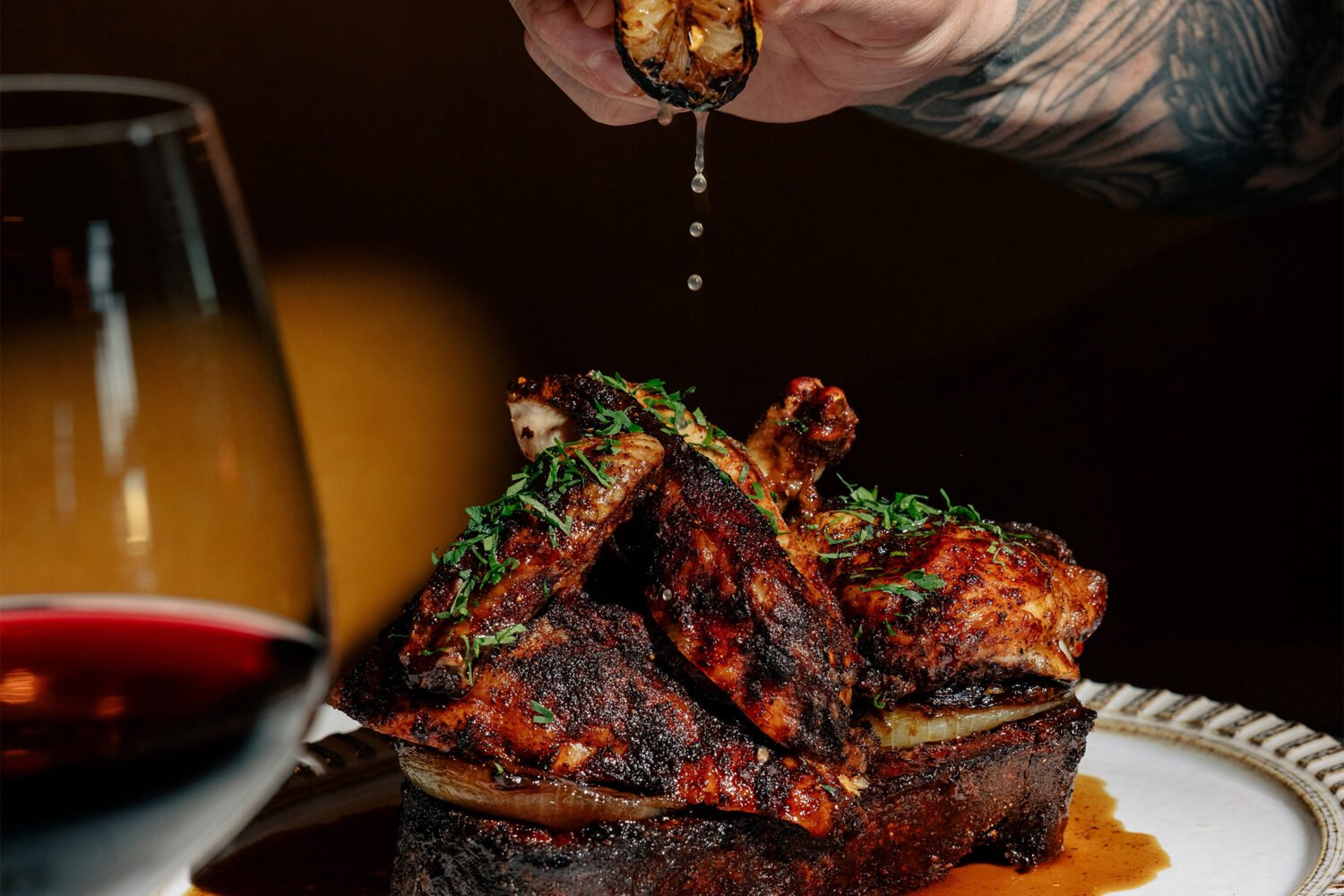The Bazaar by José Andrés. 1100 Pennsylvania Ave., NW (in the Waldorf Astoria).
It’s hard to imagine a time when José Andrés—Nobel Prize nominee, international humanitarian, pal to Gwyneth and Harry and Meghan—wasn’t world-famous. But for a long period of his career, the chef was mostly well known in two places: his native Spain, where he starred on a cooking show, and his adopted hometown of Washington, where he’s been running a handful of restaurants (Jaleo, Minibar, Zaytinya, and others) for decades and has been credited with bringing the small-plates dining model to the city.
It was a restaurant called the Bazaar, which he debuted in Los Angeles in 2008—and the PBS cooking show he launched that same year—that catapulted Andrés into a larger national conversation. For a time, the Bazaar was the buzziest dining spot in the country.
In February, after previous openings in Vegas and Miami, among other cities, DC finally got a Bazaar of its own, in the Pennsylvania Avenue hotel formerly known as the Trump International, now the Waldorf Astoria. Few restaurants in the city have made as dramatic an entrance.
First, there’s the saga of a backstory, which culminated in a legal showdown with President Trump over Andrés’s canceled restaurant plans at the hotel. (They settled, but the “by José Andrés” on the sign that now looms over the former BLT Prime space feels a little like a victory flag.)
The new place is a head-turner. The TikTok-bait cocktails served from beakers stream clouds of nitrogen around the room. The bi-level space, which dominates one end of the Waldorf’s soaring lobby, drips with velvet, black marble, Dalí-inspired florals, and cases of aging hams. It’s sexy, it’s luxe, and it can be so sceney that you might even catch Andrés himself, as I did one night, selfie-ing it up with the bar crowd and knocking back drinks. Dinner reservations have been near impossible to get—if you want one of those six walk-in bar seats, arrive early, preferably on a Monday.
If you score an actual table? Well, you’re in for a ride that’s both thrilling and dizzying.
The dinner menu boasts 45 dishes. (A daytime “snacks” roster offers a far more pared-down selection.) All are meant for sharing. They come in a wide range of hard-to-discern sizes—from one-bite tacos to group-friendly plates of rich oxtail croquetas to an entrée-size Delmonico steak—and servers recommend about six plates per person. The thing is, even after three meals, I still find piecing together a dinner here to be a puzzle that’s tough to crack. At a certain point, I added a spreadsheet of menu items to my pre-meal planning.
Where to start? Your server can help, but there’s a lot to wrap your head around and remember. There are traditional tapas and avant-garde tapas (and avant-garde riffs on traditional tapas). Plates of Ibérico ham and DIY caviar cones.

Andrés superfans will recognize some old hits. Several of the best dishes recall the early menus at Minibar, Andrés’s modernist tasting room in Penn Quarter. It’s fun as ever to be handed a small stick of cotton candy—and get to the nub of foie gras torchon hiding in the middle. A bowl of olives turns out to be delicate orbs of spherified olive juice sheened with olive oil. A caprese salad is arrayed with bright-green pesto, cherry tomatoes, and small balls of liquefied mozzarella.

A few creations, though, should come with a caution symbol. Over the years at Minibar, I’ve experienced foie gras bombs exploding in my hands and nitrogen popcorn incinerating my nasal passages. And as much as I adore another Minibar throwback, the “Philly cheesesteak”—an airy bugle of thin bread filled with cheddar sauce and blanketed with a marbly slice of Wagyu—I felt for the woman at the table next to me, whose own wound up disintegrating in her hands and spilling all over her (of course) white jeans. I walked away with only a burnt tongue from my onion-soup “cappuccino” and considered myself lucky.
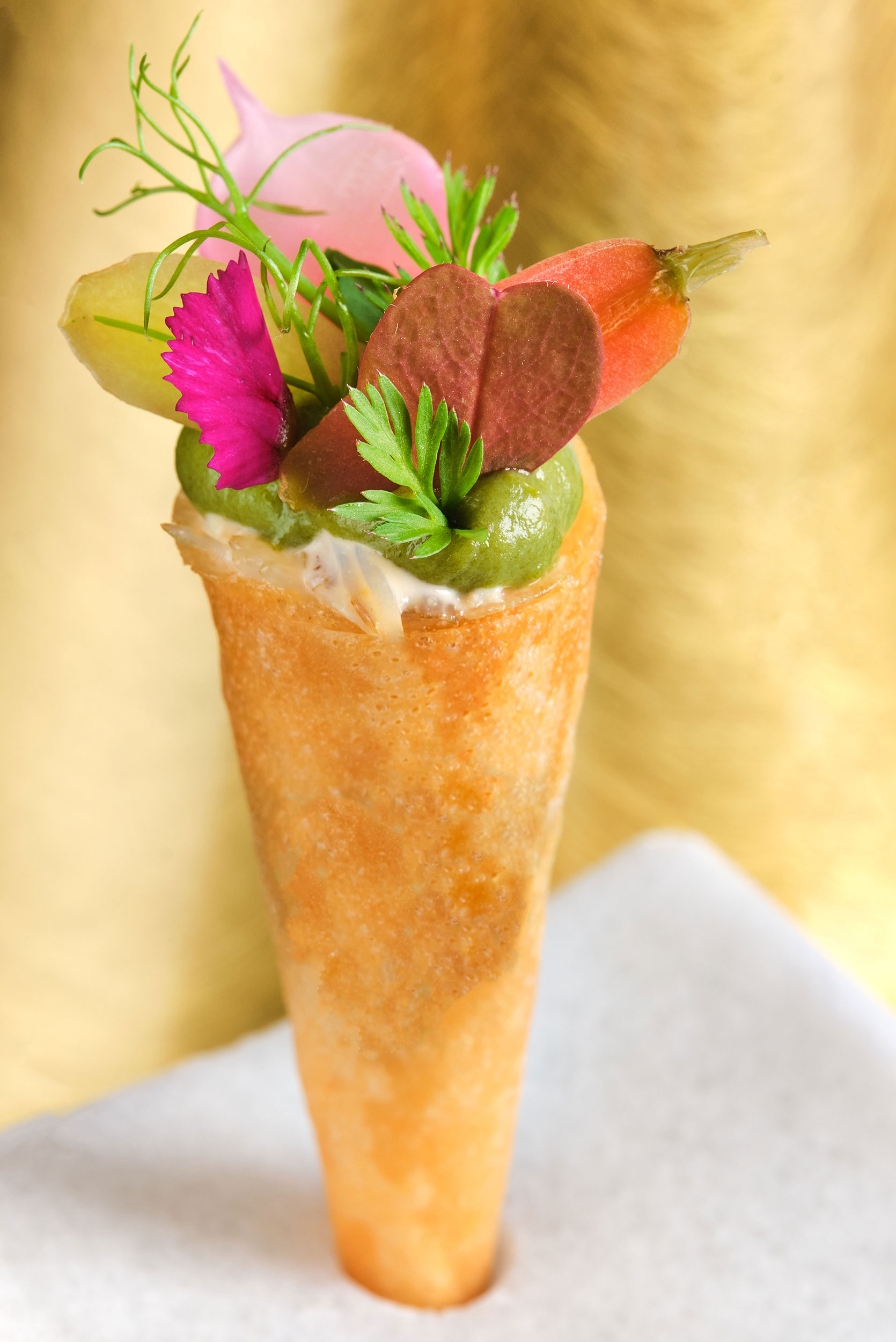
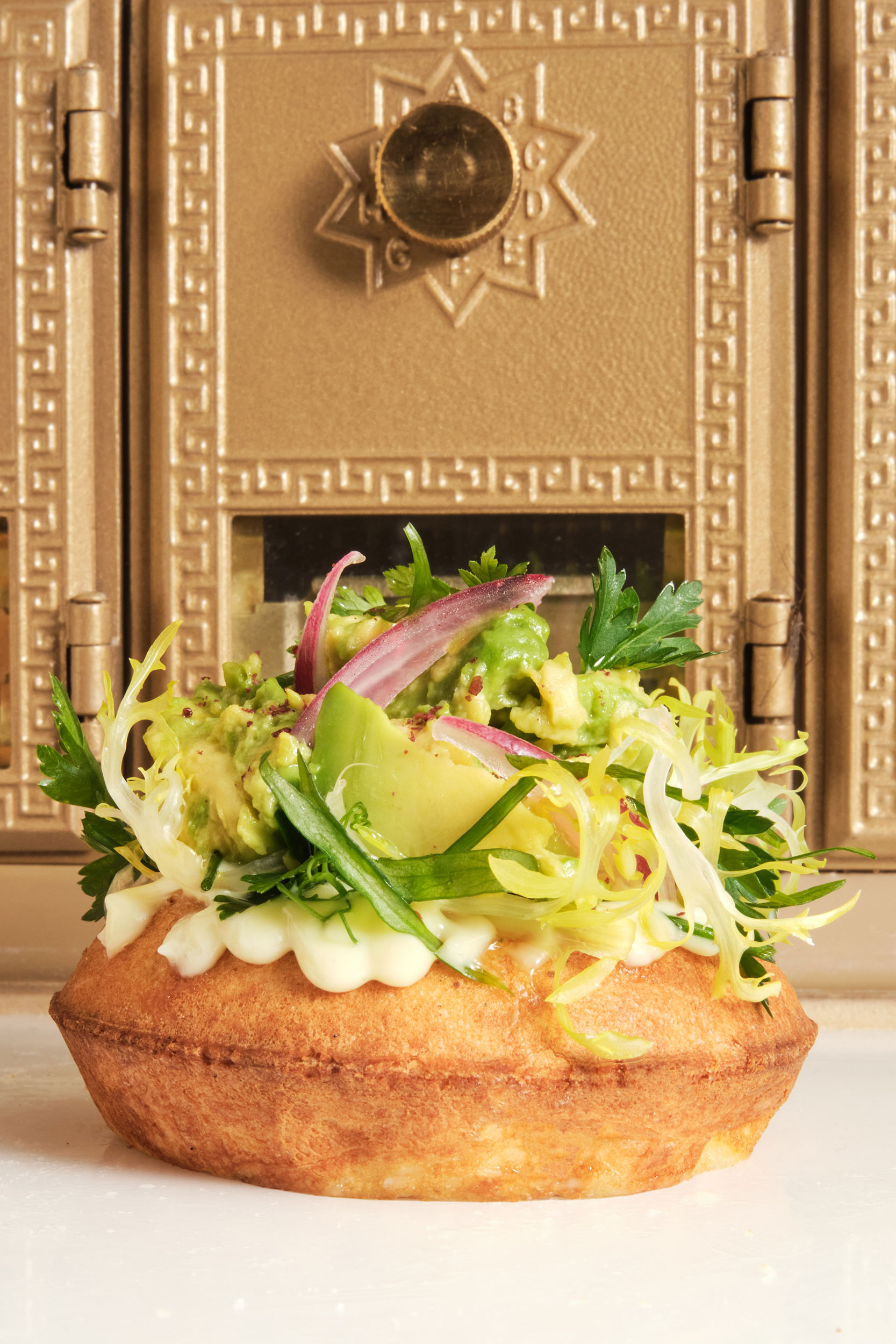
Over-salting is a real problem, too. Several dishes, from lobster Newburg to tiny rolls of Caesar salad to sesame-cream-filled “Neptune’s pillows” to a butifarra sausage named for Senator Daniel Patrick Moynihan, were thrown off by too heavy a dose.
It’s tough to find a foothold on the menu, so here are a few more of my favorite things: a Waldorf salad presented in bite-size endive leaves, a dragonfruit-and-cobia ceviche studded with pecans, a quintet of ultra-creamy conch fritters with bonito flakes, skewers of boneless Buffalo wings, and a cute glass “tin” of vinegary marinated mussels.

Together, they make about as much sense as Dalí’s dripping clocks next to a baroque portrait of Spanish nobility. But that’s Andrés’s world. Mind-expanding, giddily mischievous, and—sometimes—bizarre in the best way.
This article appears in the May 2023 issue of Washingtonian.

